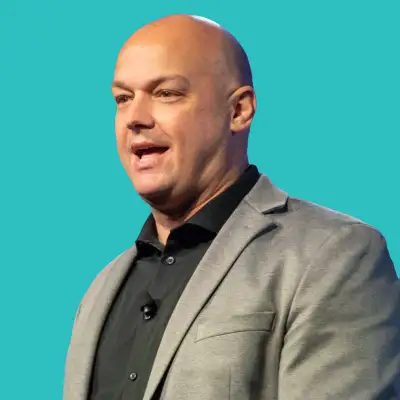Why Good Reps Plateau and What Great Managers Do About It with Julie Fox | Coach2Scale Episode #95
What happens when your strongest reps stop getting better? In this episode of Coach2Scale, Julie Fox, Global Director of Customer Success at Cin7, shares how she transformed "steady but stuck" team members into high-impact players. From busting the myth of one-size-fits-all sales training to implementing a radical feedback culture, Julie unpacks how coaching isn't just for underperformers. It’s a strategic growth engine for the whole team. She explains how her approach to structured, personalized coaching drives not just rep development but cross-functional alignment and executive trust.
Julie also dives into the frontline manager dilemma: they’re overwhelmed, under-supported, and often promoted without the tools to coach effectively. She offers actionable frameworks for feedback that sticks, one-on-ones that matter, and why even your top performers still need direction. Whether you’re a CRO trying to stabilize performance or a new manager navigating the leap from IC to leader, this episode delivers tactical guidance grounded in experience, not theory.
Top Takeaways
Top Takeaways
- Generic sales training fails high-context teams.
Off-the-shelf training doesn’t stick when sales cycles are complex, technical, or regulated; coaching must be personalized to the rep’s world. - Radical candor beats performance reviews.
Feedback should be frequent, specific, and kind, not saved for annual reviews or buried in vague praise. - High performers plateau without stretch coaching.
Even your best reps need friction to grow; without it, they stagnate and disengage quietly. - Effective 1:1s start with knowing the rep as a person.
Understanding motivations, feedback styles, and personal goals unlocks performance in ways dashboards never will. - Coaching isn't a calendar event; it’s a culture.
Building feedback loops into day-to-day operations (like peer call reviews and structured office hours) creates sustained behavior change. - Not all reps are ready for feedback in the same way.
Great managers check in before delivering feedback to ensure the timing and delivery fit how each rep processes input. - Manager consistency separates good teams from great ones.
Sporadic coaching drives uneven results; systematized coaching practices help managers scale development across the team. - First-line managers need coaching too.
Most FLMs were promoted without being taught how to lead; equipping them is the fastest way to impact rep performance and retention. - Team-first leaders earn executive trust.
Julie’s “Team Number One” mindset shows how customer success leaders can earn CRO alignment by focusing on business outcomes, not just function-specific wins. - Customer centricity must be operationalized.
Declaring CS as a priority isn’t enough; Julie made it real by embedding it into cross-functional KPIs and role-specific accountability.



